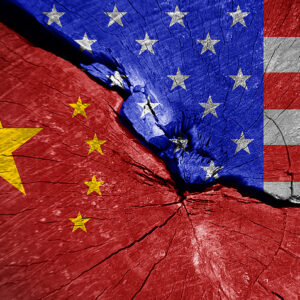After Russia invaded Ukraine in 2022, the United States quickly made large amounts of liquefied natural gas available to our allies in Europe. The shipments saved Europe from a cutoff of Russian gas. Now, the race is on to secure the strategic metals needed to build weapons to defend Ukraine, Israel and Taiwan.
These metals — everything from rare earths to antimony used in munitions and cutting-edge intelligence systems — are the foundational building blocks of our national security. Alarmingly, China dominates these minerals supply chains and is flexing its power to cut off supplies.
As competition turns to heated geopolitical rivalry, China has issued reminders that it can eliminate the West’s supply of essential metals needed for military systems at the drop of a hat.
A year ago, China announced it would restrict gallium and germanium exports, which dominate global output. These metals are critical for lasers, radars and spy satellites. No less disturbing is China’s threat to cut off exports of rare earth minerals, which are indispensable for virtually every advanced weapons system ranging from aircraft and missile defense to night-vision optics. China has banned the export of technology used to process rare earth minerals.
The United States relies heavily on China for many minerals needed for military production — including vanadium, beryllium, indium, titanium and antimony. In August — with another shot across our bow — China decided to place export controls on antimony. More than 300 munitions require antimony, and China accounts for half of the world’s production. Russia and Tajikistan account for most of the rest. The United States does not mine any antimony; it sources more than 60 percent of its supply from China.
China has overtly zeroed in on our national security Achilles’ heel, and we’ve allowed it. However, we don’t need to be this vulnerable if we choose not to be.
The problem isn’t a lack of mineral resources in the United States. Our nation’s resources are huge, worth $6.2 trillion, but we stand in our way. While there is widespread recognition that our absurd reliance on Chinese mineral supply chains must be addressed, efforts to do so have been painfully incomplete. Tariffs on Chinese imports and grants and loans for miners have been vital steps in the correct direction, but they are of little use if new mines are blocked or get lost in a permitting purgatory.
The most critical thing we need to do to answer China’s mineral saber rattling is to streamline the permitting process for new mines. The U.S. mining industry is saddled with a permitting process so burdensome that, according to a recent report by S&P Global, it now takes nearly three decades from the idea for a new mine to first production. It’s the second longest lead time for mines globally, only behind Zambia. Since 2002, only three significant new mines have come online in the United States.
Consider the case of antimony, the latest target of China’s export controls. The United States has a world-class deposit in Idaho, but the proposed mine has been in permitting for more than a decade. The company behind the project — which has received Department of Defense support — is painstakingly working through 50 permit applications from federal, state and local agencies. Even if the permits are granted, there’s a good chance of years of legal challenges from anti-mining groups.
Our national and economic security is withering due to our inability to address a broken permitting system. An overwhelming policy case to make mine permitting reform a strategic priority. China is tightening its minerals vise on the United States and our allies, and it’s far past time we do something about it.

